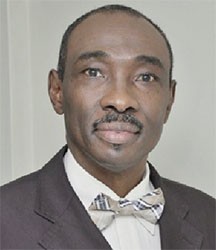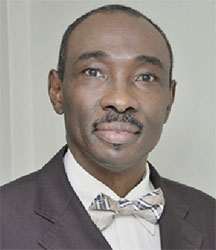PORT-AU-PRINCE, (Thomson Reuters Foundation) – The man poised to become Haiti’s next prime minister has vowed to build trust between opposition groups and the government to resolve a political crisis over long-delayed elections.

“We must re-establish trust between the different sectors of society … I’m here to act as a bridge,” Paul told the Thomson Reuters Foundation in an interview at the prime minister’s official residence in the capital Port-au-Prince late on Saturday as street protests continued.
“I have to create and promote confidence on behalf of Martelly, while at the same time seek confidence among the hardliners of the opposition.”
Paul’s nomination needs to be approved by the country’s legislature for his inauguration to take place.
Paul said he had to work on getting the trust of the international community.
“It’s not easy because the crisis of confidence is based on a tradition of people not keeping to their word.”
It would take time to break the political stalemate between the government and a group of opposition senators who disagree over an electoral law, among other issues, Paul said.
The divisions have led to a “chaotic atmosphere,” he said.
“It’s not something you can solve with a speech, or solve with laws or an executive order. This will take time, a culture, education, and certain behavior. But this needs to start now.”
POLITICAL UNCERTAINTY
Haiti, the poorest country in the western hemisphere, faces an uncertain political future as the terms of current senators and lower house representatives end on Jan. 12.
The day marks the fifth anniversary of a massive earthquake that rocked Haiti and killed more than 220,000 people.
A last-minute deal to extend the mandates of lawmakers looks unlikely, which would effectively dissolve parliament, leave Haiti without a functioning government, and allow Martelly to rule by decree.
Paul, an opposition party member, said he, Martelly and opposition lawmakers have begun to discuss the appointment of ministers to form a new coalition government.
“I hope we can do this as soon as possible. But I know the situation. Not everyone has the same agenda and some are looking towards a path of agreement, while others want discord.”
“Those who want chaos at any cost won’t cooperate. As such, we’re going to concentrate our efforts on those people who show good will and not seek unanimity.”
Paul said he hoped Haiti’s electoral commission would fix a date for legislative and municipal elections, postponed since 2012, so that elections can take place “as quickly as possible”.
The government has faced months of nationwide street protests over the delayed elections, with renewed calls for Martelly’s resignation.
Anti-government protesters have accused Martelly of corruption, links to drug traffickers and abuse of power.
Near the presidential palace, which was destroyed in the 2010 earthquake, police clashed with around 2,000 demonstrators on Saturday.
AID MONEY
Speaking about the hundreds of millions of dollars in aid sent to Haiti to rebuild the quake-ravaged country, Paul criticised international donors for not working with the government as equal partners and for not giving Haitians a greater say in how aid is spent.






